Keywords: Regulation
There are more than 200 results, only the first 200 are displayed here.
-
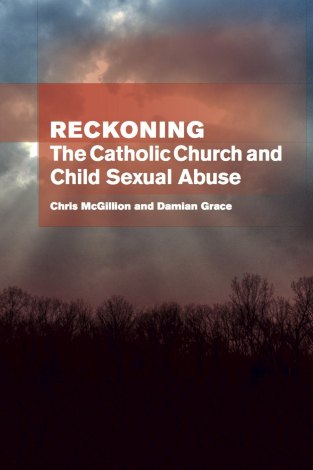
RELIGION
- Andrew Hamilton
- 31 July 2014
14 Comments
We might expect that research into the causes and history of sexual abuse will continue and increase. As part of its owning of the crimes that have flourished within it, the challenge for the Church is to take such research seriously, particularly when it touches on the part played by such aspects of Catholic life, culture and governance as clerical celibacy, attitudes to women and sexual morality, and clericalism.
READ MORE 
-
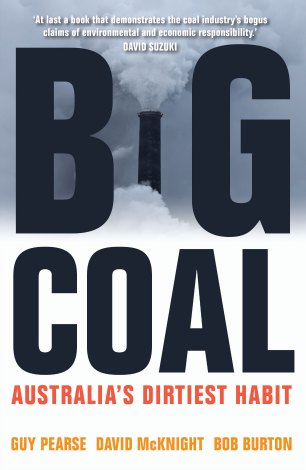
ENVIRONMENT
- Thea Ormerod
- 30 July 2014
18 Comments
I am a grandmother of six, a practising Catholic and for some years was our local Catholic youth group mum. I was drawn to protest actions because other ways of protecting the future for my grandchildren were proving fruitless. Having stayed with the protesters and seen them in action, I have been impressed with their disciplined dedication to an ethic of peaceful non-violence. It is not 'violence' to frustrate mine workers and annoy the police.
READ MORE 
-
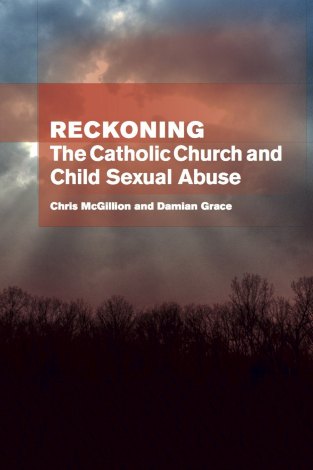
RELIGION
- Chris McGillion and Damian Grace
- 23 July 2014
20 Comments
It is widely assumed that rules are the solution to transgressions such as those being investigated by the Royal Commission into Institutional Responses to Child Sexual Abuse. Rules are useful. They can be framed to aid compliance and deter wrongdoing. It is no argument against them to say that people will still offend, but if rules are more legal requirements than the expression of genuine morality, they will have limited effectiveness.
READ MORE 
-

AUSTRALIA
- Michael Mullins
- 21 July 2014
8 Comments
The Coalition glorifies business entrepreneurship, which is promoted as a good that trumps social inclusion. It is paradoxical that there is more appetite for social entrepreneurship in the USA, which is known as the land of the self made man. The explanation is that investing in social capital ultimately makes good business sense.
READ MORE 
-
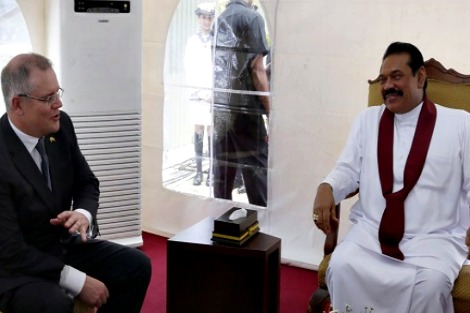
AUSTRALIA
- Kerry Murphy
- 11 July 2014
6 Comments
While Immigration Minister Scott Morrison sits with Sri Lankan President Mahinda Rajapaksa and hands over customs vessels to the Sri Lankan Government for use in preventing people escaping Sri Lanka, Australia's High Court is deciding whether a group of 158 Sri Lankan asylum seekers can be returned to the Sri Lankan Government. How did we get to the stage where we are supplying the alleged persecutors with the means of stopping people from escaping and seeking our protection?
READ MORE 
-

ECONOMICS
As the Pope and economist Thomas Pikkety have observed in recent times, the inequity created by capitalism is a growing concern. But the problem with this argument is that 'capitalism' is too broad a term. The attack would be far better directed against the financialisation of developed economies. A new type of sovereign has emerged, and like all rulers they are cheerfully engaging in acts of plunder.
READ MORE 
-

AUSTRALIA
- Andrew Hamilton
- 19 June 2014
28 Comments
Many Australians, myself included, believed that the Federal Budget was unfair. So Treasurer Joe Hockey's recent speech in defence of its fairness offers a welcome challenge. Hockey is right to insist that fairness can co-exist with gradations of wealth within society. But fairness is incompatible with gross disparity of wealth because the concentration of wealth in the hands of few people and corporations destroys equality of opportunity.
READ MORE 
-

ENVIRONMENT
- Andrew Hamilton
- 12 June 2014
20 Comments
As Obama took steps to deal with carbon emissions, Abbott walked away from them. Beneath the complex political considerations in these responses stir deep passions. Human flourishing requires that we recognise the interdependence of human beings and our common interdependence with the environment. That recognition marks out the boundaries of the field within which our autonomy and initiative should play.
READ MORE 
-

ENVIRONMENT
- Neil Ormerod
- 06 June 2014
13 Comments
During Abbott's forthcoming visit to Obama he will find a president not only willing to take strong action in relation to climate change, but doing so with the public support of the US Catholic bishops. This is not a situation he will find comfortable given that in the Australian context he has always previously been able to count on the support of Cardinal Pell to muddy the waters on climate change.
READ MORE 
-

RELIGION
- Andrew Hamilton
- 29 May 2014
31 Comments
Talk about politicians' faith is a trivial indulgence that diverts attention from more important questions. To conclude that a politician is influenced by their faith or is unfaithful to it may give satisfaction to the person who makes the judgment, but it does nothing for those affected by unfair policies. Nor is this kind of judgment one that Christians may make if they wish to be consistent.
READ MORE 
-
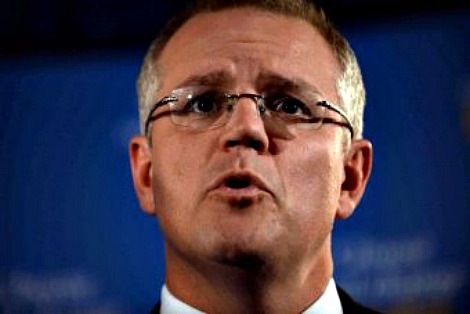
AUSTRALIA
The Government's vilification of people arriving by boat has reached the level where the term 'illegal' features in the Budget documents. Immigration Minister Morrison has insisted on referring to people arriving by boat as 'illegals' for some years, despite the Migration Act using the less pejorative term 'unlawful non-citizen'. This is not just a lawyer's linguistic debate; if it were not important, the Government would not insist on the term.
READ MORE 
-

INTERNATIONAL
- Andrew Hamilton
- 29 April 2014
6 Comments
It would be unfeeling and presumptuous to speculate on the causes of the disaster. But it may be helpful to enumerate the questions that have been asked, as they disclose a pattern. In travel by ship, as in many other enterprises, there are two sets of interests: the operational interests of those who provide the service, and the interests of those who benefit from the service. Companies ideally take both seriously, but they stand in tension.
READ MORE 